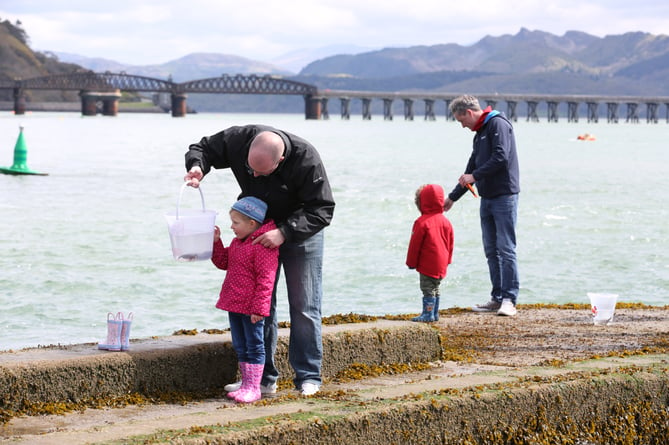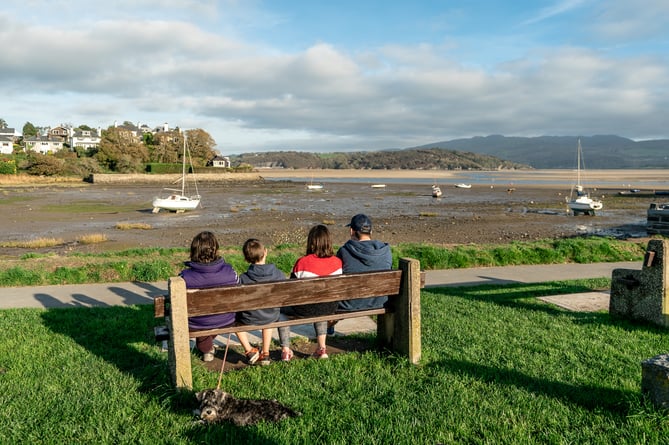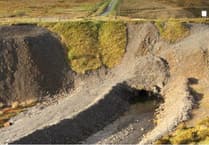A CONSULTATION has been launched on controversial plans to allow holidaymakers visiting Wales to be charged a tax – with the scheme panned as “misguided and damaging” by tourism chiefs.
The Welsh Government launched a public consultation on Tuesday, 20 September on the proposals to give local authorities the powers to introduce a tourist tax.
The visitor levy would be a small charge paid by people staying overnight in accommodation in Wales.
More than 40 countries and holiday destinations around the world have introduced a form of visitor levy, including Greece, France, Amsterdam, Barcelona, and California.
On continental Europe, the levies already in place can reach as high as seven euros per night, but can be as low as 10 cents.
What’s a tourism tax?
Tourist levies are common in many tourist destinations across the world. They’re used to finance the maintenance and upkeep of tourist facilities as well as caring for the environments that tourists visit.
The Welsh Government’s Programme for Government and the Cooperation Agreement both pledge to introduce legislation to allow local authorities to charge a tourism levy.
A consultation report estimates a visitor levy of £1 per person per night visiting Wales could raise around £30 million a year, but would leave visitor accommodation providers facing set-up costs and on-going administrative costs.
The Welsh Government said that a discretionary visitor levy for local authorities in Wales would “represent a very small proportion of a visitor’s overall spend”, but the report outlines that “higher prices for visitors could lead to changes in visitor behaviour, such as less visitor spending in the local economy, reductions in the number of nights visitors choose to stay in the local authority and, in extreme cases, a sufficiently high rate of visitor levy could lead to visitors choosing alternative destinations to visit.”
As well as a cost per person per night, other options being considered are a rate per room per night, and an overall percentage levied on the entire stay cost.
How would a tourism tax work?
The Local Tourism Levy would be applied to overnight stays in Wales. The decision to charge a levy would be left to individual local authorities, and the money raised would be invested into the local authority area.
The Minister for Finance and Local Government, Rebecca Evans, says the levy is an opportunity for local authorities to “manage and invest in the services and infrastructure which make tourism a success”, whether this be cleaning beaches or maintaining toilets and footpaths.
The levy is being proposed to support the future of tourist locations by promoting a more sustainable approach to tourism. The exact fee visitors will be charged hasn’t been decided yet.
Rebecca Evans, Minister for Finance and Local Government, said the proposals are “about preparing for the future.”
“Our intention is to bring about a sense of shared responsibility between residents and visitors, to protect, and invest in, our local areas,” she said.
“By asking visitors – whether they have travelled from within Wales or from further afield – to make a small contribution towards maintaining and enhancing the place they are visiting, we will encourage a more sustainable approach for tourism.”

Proposals for a visitor levy have been progressed through Welsh Government’s Co-operation agreement with Plaid Cymru.
Plaid Cymru Designated Member Cefin Campbell said: “While Wales may be the first place in the UK to introduce such a levy, we do not believe it will be the last – as we have seen recently, a visitor levy may soon be introduced in Edinburgh, so Wales is not alone.
“We want to continue to see a thriving tourism industry in Wales.
“It is vital we have sustainable, responsible tourism that works both for visitors and for the communities they are visiting.
“Should local authorities decide to implement a visitor levy, it could make a real difference in communities across Wales to help develop and protect local services and infrastructure.”
Welsh Conservatives warned the average family face a £75 charge under the plan, with Shadow Tourism Minister, Tom Giffard MS saying the scheme has “near-unanimous opposition from the Welsh tourism industry”.
“This policy will put livelihoods at risk as one-in-seven jobs – 200,000 people - rely on the tourism industry.
“What’s more, there has been no guarantee that this tax would see any improvement to tourism offers in local communities, and the proceeds are instead likely to get sucked up into council coffers.
“The decision to press ahead with this policy is nothing short of arrogance from the Labour Party.”
How do tourism taxes work elsewhere?
Tourist levies are used in many places across the world. In Europe, tourist levies, or occupancy taxes, are charged on short-term stays, usually applying to each person (with exemptions for children) per night.
They’re as low as €0.10 in Bulgaria and as high as €7.50 in Belgium. Levies can also vary by accommodation type.
In Paris, for example, levies range from €0.20 for campsites to €3.00 for five star hotels, plus additional departmental and regional taxes paid on all types of accommodation. This compares to somewhere like Porto where €2 is charged per person per night regardless of where you’re staying. In some places, such as Berlin (5 per cent) and Vienna (3.2 per cent), levies are charged as a percentage of the accommodation cost.
Not all tourist levies are charged on a nightly basis. In Japan, visitors pay a flat-rate of 1,000 Japanese yen (about £6) to cruise or airline operators when they leave the country. New Zealand’s International Visitor Conservation and Tourism Levy is a single fee of NZ$35 (about £18), which is paid before visitors enter the country.
The Chair of the Wales Tourism Alliance, former Conservative MS, Suzy Davies, has been a vocal critic of the plan to introduce a tourism tax, saying the plans would lead to a contraction of the tourism industry and put jobs at risk.
“This consultation is the chance for those who work in the Welsh tourism industry, supporting jobs and the self-employed in local communities, to make it plain how misguided and damaging this bed tax would be,” she said.
“Visitor numbers have not recovered since the pandemic.
“Our hospitality businesses are still struggling with staff shortages, trying to meet local demand as well as visitor custom.
“Long-standing, locally owned family accommodation businesses have been hit with tax changes imposed by a Welsh Government which admits it had not even assessed the impact of those changes.
“Like all businesses across the UK - and our customers - we have been winded by the cost-of-living crisis.
“The effects of that, as we recall from the last recession, will last for some considerable time.

“Now, after 20 years of Welsh Government campaigns to raise the number of overnight visits to Wales, it is targeting the very businesses who have invested in that strategy.
“Wales is not like destinations which already charge a tourism tax.
“They enjoy other targeted tax cuts for tourism and hospitality which mitigate the effect on their businesses.
“This is not the time for tourism businesses to stay silent.
“They need to tell Welsh Government about the practical implications on their work, on them as self-employed risk-takers, about their existing contribution to the local and national economy and the cumulative effect of this and other policies affecting tourism in Wales.”
Under the plans, each local authority in Wales will have the power to decide if they want to introduce a tourism tax, and the money raised will be re-invested in local areas to support local tourism.
This could be investment in keeping the beaches and pavements clean, through to maintaining local parks, toilets and footpaths.
The consultation seeks views on who should pay a levy, who would be charging and collecting the levy, how the levy could be best applied and how revenues from the tax could be allocated.
The consultation runs until 13 December and can be found at gov.wales/visitor-levy




